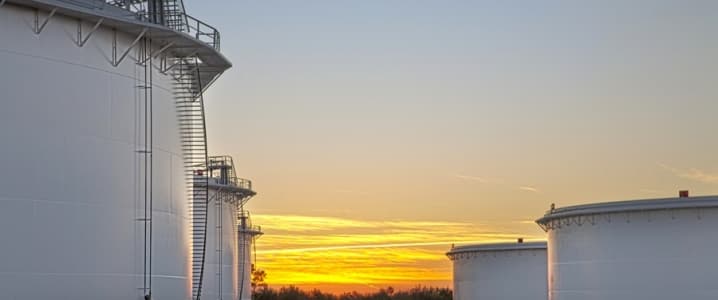Abu Dhabi looks to publicly list parts of its national oil company
The United Arab Emirates plans to list part of its national oil company on public markets in order to create new revenue streams and gain access to new markets amid low oil prices. The Abu Dhabi National Oil Company (ADNOC) is considering an IPO of minority stakes in some of its services business, reports CNBC.
How much of the company Abu Dhabi plans to list is still unclear, but its chief executive Sultan al-Jaber said “ADNOC will remain fully owned by the government of Abu Dhabi.”
ADNOC has been talking to banks about the listings, with the company’s profitable businesses likely to be floated, reports Reuters. Abu Dhabi plans to offer equity in its business sometime this year.
ADNOC is seeking “large trading houses, international pension funds, private equity investors and global infrastructure specialists rather than just national oil companies and international oil companies,” the National, an Abu Dhabi-based newspaper, reported.
It is looking to the new investors to support it in securing market access for its products, especially in Asia and a new co-investment approach would lead to a “more open partnership model,” Jaber said.
The company would remain the major shareholder but would offer “strategic partnerships and co-investments across our service and refining businesses and select infrastructure assets, such as ADNOC pipelines and storage facilities,” he said.
Potential areas for partnership include the development and expansion of a leading, regional drilling company and a new energy infrastructure venture as well as downstream ventures, The National reported. Related: Is Wall Street Funding A Shale Failure?
“Shifting global trends are creating a new energy landscape where new rules of engagement are required,” Jaber said in a statement. “In this new energy era, we need more creative strategies and more flexible business models to capture growth.”
Saudi Arabia and other Middle Eastern countries look to public markets
OPEC’s largest producer, Saudi Arabia, also hopes to enter public markets in the future, with the country believing an offering could amount to a valuation of $1 to $2 trillion for its state-run Saudi Aramco. Unlike the planned ADNOC offering, Saudi Arabia plans to offer shares in the main business and will list internationally, while the U.A.E. producer plans to list domestically.
Oman, the largest non-OPEC oil producer in the Middle East, also said it plans to sell shares in some state-owned downstream energy companies to the public, joining its neighbors in the Persian Gulf in approaching public markets.
Low oil prices have forced many countries in the Middle East, which rely on income from exported crude oil for the majority of their budget, to dig deep into their sovereign wealth funds.
With low oil prices persisting, many are now having to turn parts of their state-owned oil giants public to generate income. Investors are often wary of putting money into international oil companies, however, for fear that the state will use its majority stake to further political goals rather than economic ones.
When OPEC members offer equity, the goal is more than an immediate influx of cash
ADVERTISEMENT
For the countries offering equity, the goals are more than an immediate influx of cash, says Helima Croft, global head of commodity strategy at RBC Capital Markets. Many of these countries hope to reduce the dominant role oil plays in their economies over the next decade.
“It’s about diversification,” said Croft. “They need oil money to build world-class investment vehicles.”
By Oil and Gas 360
More Top Reads From Oilprice.com:
- Significant Draw In Crude Inventories Jolts Oil Prices
- Halliburton Sees Oil Price Spike By 2020
- The Technical Failure That Could Clear The Oil Glut In A Matter Of Weeks


















